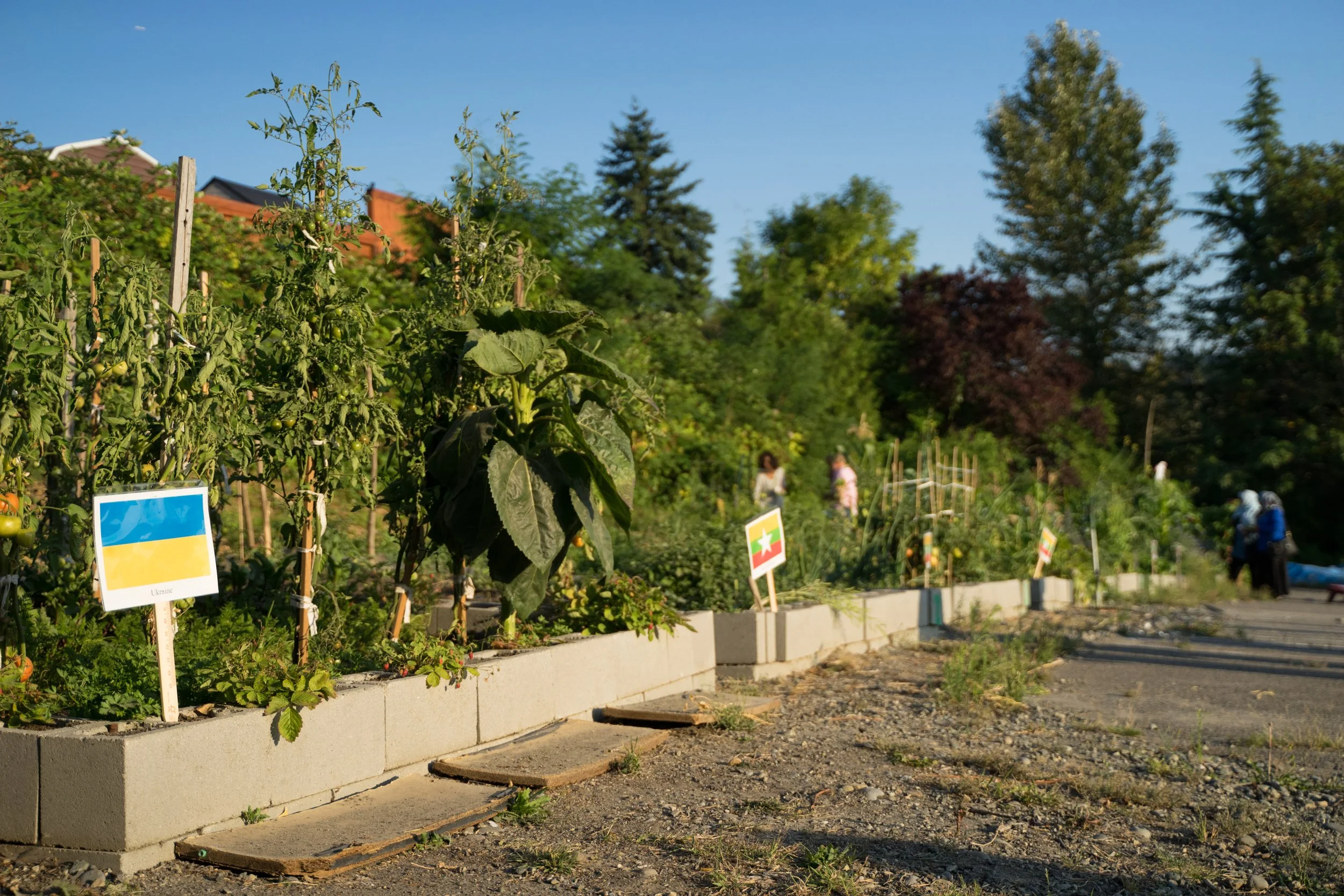Paradise Parking Plots Community Garden | 2022
The City of Kent and South King County are home to immigrant and refugee families from around the world. In response to calls for community space, World Relief Western Washington began developing the Paradise Parking Plots Community Garden in 2016, transforming a frequently flooded parking lot at Hillside Church into a vibrant multi-cultural garden oasis and resilience hub.
ESTIMATING THE VALUE OF ECOSYSTEM SERVICES BENEFITS
The benefits to people and communities provided by ecosystems—including gardens—are known as ecosystem goods and services. While some may be traded in markets, other benefits—like stormwater capture, improvements to air and water quality, and educational opportunities—are not. The Paradise Parking Plots garden provides a range of benefits, including habitat, disaster risk reduction, water quality, soil retention, and climate stability, among others. Together, these goods and services are valued at a minimum of $15,276 in ecosystem services benefits each year in addition to the $127,000 in market value of food grown per year.
Earth Economics also compared the costs that World Relief incurred to develop and maintain the garden (capital investments, operations, maintenance) with the estimated benefits (both market and non-market benefits). The results revealed a benefit-cost ratio of 1.28—meaning every dollar expended on the garden generates $1.28 in benefits.
“What I like best about the Hillside Parking Plot was that I got to grow my veggies and fruits without any problems and that I just got to see everyone else work on their gardens.”
GARDENS AND GREEN SPACE SUPPORT COMMUNITY RESILIENCE
The Paradise Parking Plots Community Garden supports local and cultural food security, builds relationships, and connects people to the soil of their new home while building resilience and providing flood relief and water quality benefits to neighbors and the Green-Duwamish watershed.
WHO BENEFITS FROM THE PARADISE PARKING PLOTS?
Since 2019, an average of 163 people per year from 31 countries have grown food at the community garden. Most have families, and 40 percent are English language learners. The garden also serves those most in need—92 percent of gardeners are low- or very low-income.
“We loved seeing flags from our mother land gathered together under farming.”
Click on the green icons on the map to read what gardeners have to say about Paradise Parking Plots.
PARADISE PARKING PLOT COMMUNITY GARDEN RESILIENCE FEATURES
Over 1,500 volunteers removed more than 50,000 square feet of asphalt. Added features include:
50+ garden beds
5 rain gardens
4 rainwater cisterns
1 bioswale
1 food forest
2 restored hillsides
3 composting approaches
The food forest and garden beds provide fruit, vines, and other crops for gardeners to enjoy foods reminiscent of home. These resilient garden features absorb over 1 million gallons of stormwater per year!
Photo Credits: World Relief Seattle
© 2022 Earth Economics. All rights reserved.








